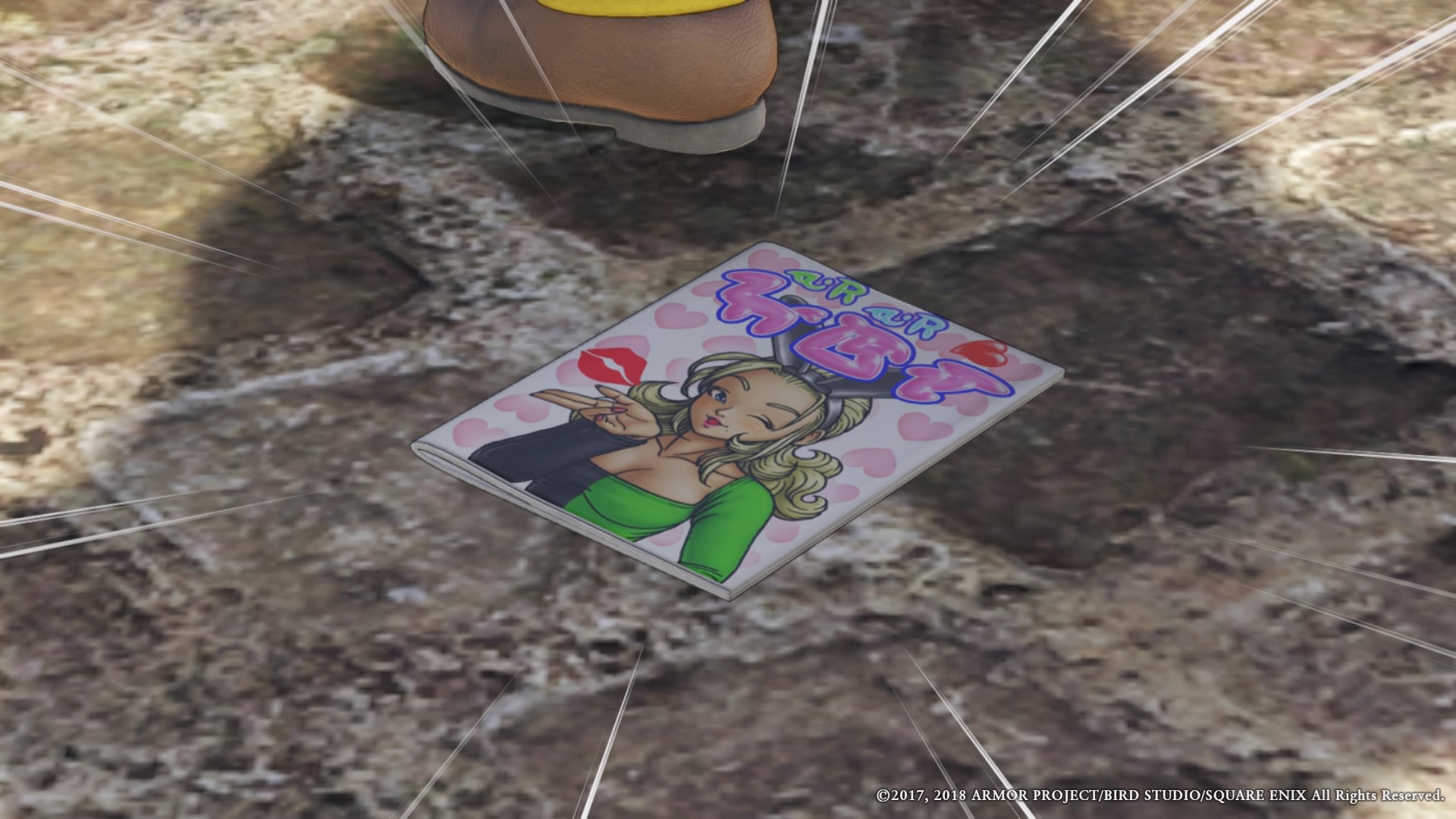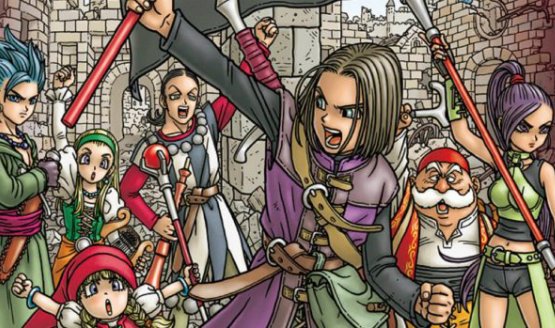From the North American perspective, the road to Dragon Quest XI has been far too long. I remember going to New York City and picking up my copy of Dragon Quest IX for the Nintendo DS in 2009. A King Slime decal was applied to the steps inside the Nintendo store, and a big ol’ plush was also on display. It was the most Dragon Quest paraphernalia I have ever seen out in the wild. I missed the dismally-marketed Dragon Quest Monsters: Joker 2 in 2011, so I wouldn’t see another game in the series until Dragon Quest Heroes on the PlayStation 4 in 2015. I thought it was a miracle, seeing not only such a strange offshoot of an already troubled series get localized, but also seeing the amazing sights of the Dragon Quest world in HD. Three years later, Dragon Quest XI: Echoes of an Elusive Age told me I was an idiot baby for being impressed with Koei Tecmo’s spinoff assets. I have spent almost the past month engrossed in this world, and I’m still not ready to leave.
Monster Mash
Where to even begin? Dragon Quest XI is a massive game, not just because of its oppressive length, but also the sheer volume of stuff you’ll be doing as a passenger on this journey. Much of it is familiar if you’re already a fan going in, but it’s on a scale you’ve never seen before, and perhaps never even imagined based on Dragon Quest’s previous trajectory. From an aggressive deluge of content to a perfectionist level of detail, it’s impossible to avoid being drawn in regardless of where you stand on this series beforehand. And that’s before I even begin to comment on things like the writing, the characters, the systems, all the real substantive stuff. Really, it would be a disservice to the Dragon Quest legacy to start anywhere other than the monsters, the constantly growing and consistently droll roster of creepy-crawlies that is arguably the backbone of this experience.
It’s hard to say anything about Akira Toriyama that hasn’t been said before. I can’t believe this guy is still working, even if largely backed by a whole studio at this point. While there are scores of recolors, there are still plenty of original and new monsters, and each one is as memorable as the last. Developer ORCA, Inc went to ludicrous lengths to make these bizarre creatures seem more alive than ever. Much of that can be lent to Unreal Engine 4, with its trademark texture and sheen lending a lot of life to the models. But there’s also a renewed sense of presence for the monsters, from a new depth of animation, to collision and geometry, and finally to sound design.
The cartoony impact sounds and old school fizzles and bloops are still present, but punctuated with actual animal-like sounds when appropriate, as well as diegetic effects that I cannot recall, as a person with a dedicated Dragon Quest shelf nailed to my wall, being in one of these games before, especially a core RPG entry. A monster that is also a drum makes the appropriate sounds when bopped by a weapon or its companion, a spear-wielding Cruelcumber (yes, the puns are still in full force and still amazing) drops its spear onto itself and you can hear the hilariously tragic piercing when it lands. There’s jingling and clattering, all of it doing that extra bit of work to bring the game to life. Of course, being a Dragon Quest game, much of that life needs to be crushed in service of the story, and all the grinding you need to do to get through it.
Tried and True
More often than not, Dragon Quest games live up to their reputation. If you’re new here, don’t expect a Final Fantasy-like eternal chase for innovation. What you’re getting is a quintessential, old school JRPG experience with a fresh coat of paint. Progression is slow, combat is turn-based, and many of the musical cues and fanfare have changed very little since the early Famicom titles. You can expect a similar archaic, but whimsical feel from the storytelling as well. You’re the good guy, with a powerful destiny that is fueled by light-based powers and lowkey blessings from literal, Christian God. The big baddie is a manifestation of pure evil, and he wants to distort the world in his own, macabre image. You and your band of wizards and warriors must brave the elements, and fight thousands of monsters to earn enough experience points to send the evil away. The end. Sort of.
Where Dragon Quest games, especially Dragon Quest XI, have come to succeed is in regards to everything that happens along the way. Much more than other RPGs, Dragon Quest utilizes vignette-style storytelling to move the player along, rather than a constant build to the ultimate confrontation. Often, the next key to the main journey is consequential at best, merely a reward for stumbling upon a very isolated, very human problem and doing what you can to solve it, because it’s the right thing to do. Along the course of the journey you’ll touch and be touched by many other lives, often their only involvement being the misfortune of being around when a terrifying cosmic horror is trying to destroy the world. Pointing out specific examples would be a no-no here, but Dragon Quest XI is no slouch in this department.
Growing Pains
Where Dragon Quest XI does slouch, is in an oddly halfhearted attempt to add modern gaming affectations to the experience. As you navigate the world, you run into several different ways to make moving around in the world more complicated, that don’t really serve much of a purpose. It’s stuff you’ll recognize if you’ve played a AAA, action-adventure game from the past ten years or so. Sometimes you’ll slide across small ledges, tip-toe across a log, climb up some waist-high ledges, crawl under an overhang, or maybe climb a rope.
You can’t really fall, nor are you ever really in a hurry when making your way through a forest or dungeon. These little moments, in their interactivity, feel like an attempt to “look” like other games, like a way to address complaints that Dragon Quest looks or feels too old. These moments don’t help, and perhaps make me notice even more that these games don’t always fit in. You can also attack enemies outside of battle to do a little extra damage, or get their attention to start a fight a little faster. But you can’t really sneak around otherwise, and a newly-added dash button makes avoiding enemies trivial. Again, these little mechanics feel like byproducts of compensating for specific complaints, or that awful malaise that sometimes still exists, suggesting that JRPG fans are deathly afraid of random combat encounters. I could point to Octopath Traveler as premiere evidence of that contrary, but oh well. These are ultimately minor complaints, and sometimes the obstacles do add a bit to the depth and presence of an environment.
I also worry that Dragon Quest does not always make for a massive, console-based JRPG experience. Even in the smaller, handheld games, it’s obvious there isn’t always a ton of thought put into how individual sections of world are designed. Dragon Quest games are notorious for presenting a ton of branching paths, and hardly actually rewarding the player for finding them. Treasure chests are somewhat rare and not always full of relevant goodies. Large spaces are not often used well, and I often feel like I’m just running around for the sake of running around (a feeling that is not helped by the addition of a stronger run function for the North American release). As lovely as the world is (seriously, this game is beautiful), all the empty space sometimes reminds me of Final Fantasy XI, and not in a good way.
Another part of Dragon Quest XI I have mixed feelings about is the skill system. It’s an update to the system found in Dragon Quest VIII, the last time a core Dragon Quest was on a console (not counting the Japan-only MMO), which is very much the previous stop on the DNA train here. You gain skill points as you level up, and dump them into various categories largely unique to each character. Most of the time a character can choose between a few different weapons, and perhaps a supplementary category or two based on the character (thief, mage, etc.). The problem is, you only get so many skill points, and only so quickly. Skills get expensive, and leveling up only gives you a small handful, especially when you’re slogging through the middle of the game.
Beyond that, it’s really inefficient to experiment with different weapons because of how scarce points are. Dragon Quest XI wants you to specialize, and like VIII before it, isn’t afraid to penalize you for not having a plan. In this game, you can pay money at a church to take skill points back, which is nice, but kind of a stubborn admission of failure at the same time in my eyes. Granted, other Dragon Quests have really excellent job (or vocation in this case) systems, and from those I am spoiled.
Twists and Turns
Now, that sounds like a lot of problems, and sure, that’s true. But Dragon Quest XI is a lot of game. There is nothing more pure in the gaming world than running around a lush environment, bashing monsters over and over, and hearing the cute, little jingle when a character finally levels up, or knowing you finally hit the number of coins you need to afford that next weapon. In Dragon Quest XI in particular, I often found myself in a hurry, even, to get past the grinding I typically live for to get to the next story development. Based on everything I wrote before, this may come as a surprise. Didn’t this fool man just suggest the story isn’t a big deal? Yeah, that’s still true. The story in Dragon Quest XI remains in service to the smaller bits, but the story beats that do stand out often do so because they are genuinely surprising.
While I’m not about to suggest Dragon Quest XI is subversive, I did find myself totally caught off-guard by several of the developments along the critical path, many of which I was totally convinced I had already figured out. Dragon Quest is comfort food, easy to chow down on because you know what you like and you know you’re about to gnaw on it for 100 hours. But on occasion, this scenario slips in a bit of spice when you aren’t paying attention, and it has a real kick to it. There was even a point, a critical point of the tale, where I felt my jaw hang open. That almost never happens for me with Dragon Quest, and I am so excited about it.
I have my issues with Dragon Quest XI: Echoes of an Elusive Age. It’s a bit clunky when it tries to pretend it’s cool like other video games. I wish I had vocations instead of skill points to play with, and it would be nice if I could get from point A to B a bit faster, or have more to do along the way. But at the same time, I found myself engrossed in the usual grind I’ve come to love over the years, the silly and fantastical creatures from my favorite artist, and the storytelling that met and even rattled my expectations. There’s even a neat little crafting system I didn’t have room to mention, secrets to find, and of course hours and hours of post-game content. If you want to go on an adventure, and I mean a real adventure that tugs on your heartstrings, makes you smile, and yells puns at you constantly, do not sleep on Dragon Quest XI.
Dragon Quest XI: Echoes of an Elusive Age review copy provided by publisher. Version 1.00 reviewed on a standard PlayStation 4. For more information on scoring please see our Review Policy here.
-
Everything about the monsters
-
Gorgeous visuals
-
Genuine surprises in the storytelling
-
Lots of little mechanics that get in the way
-
Skill system feels burdensome
-
A bit too much open (empty) space
Dragon Quest XI Review
-
Dragon Quest XI Review #1
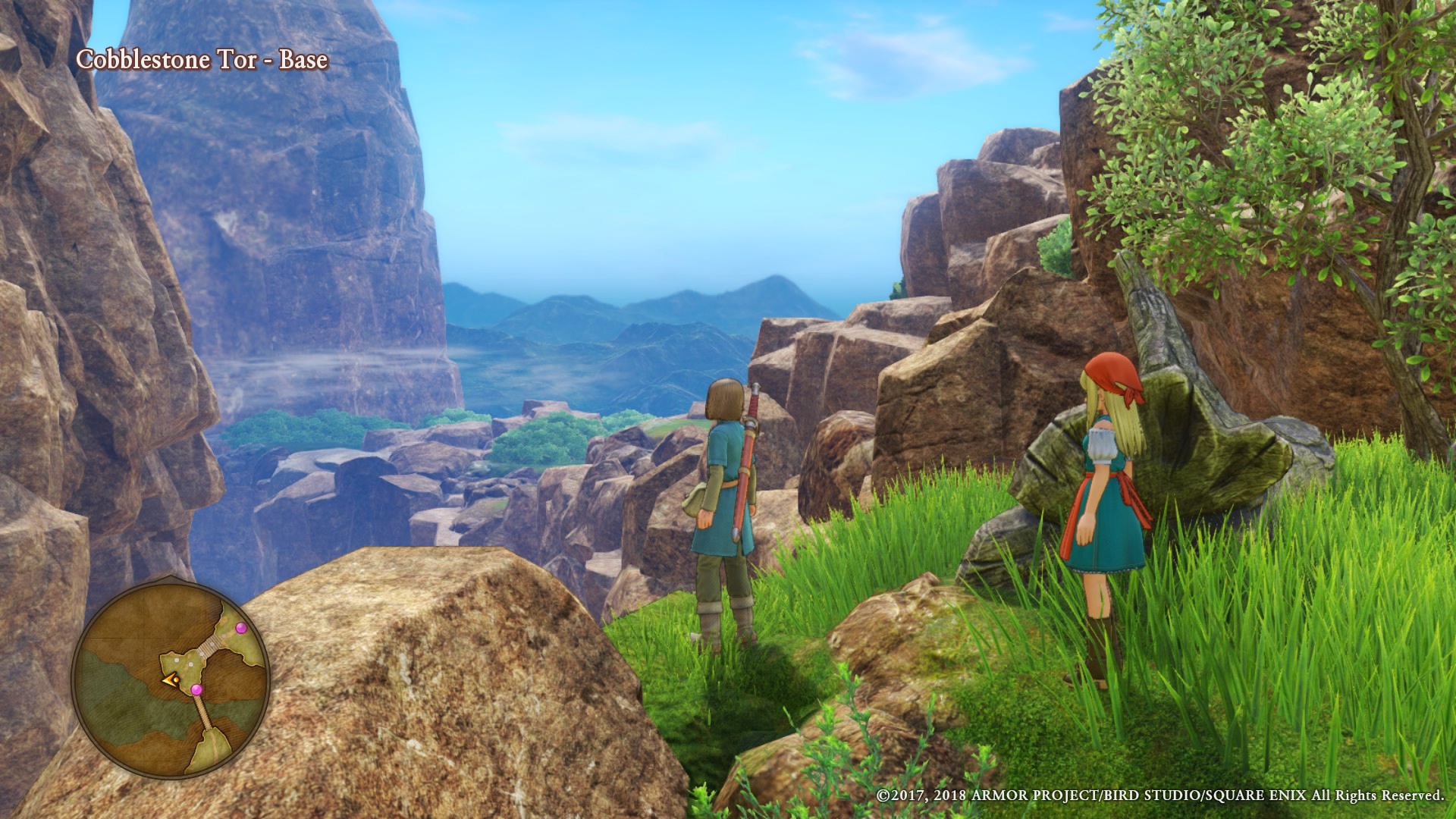
-
Dragon Quest XI Review #2
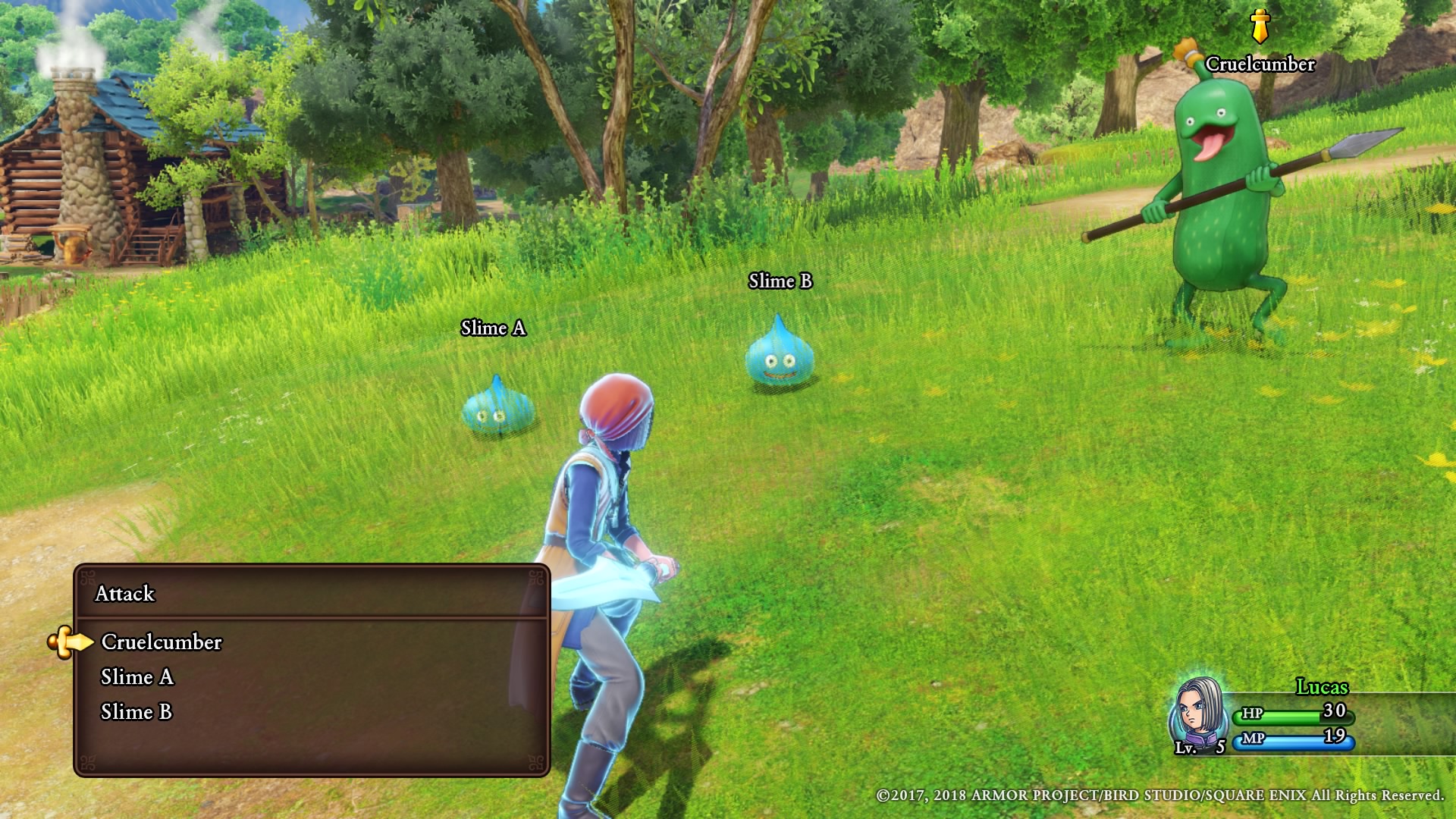
-
Dragon Quest XI Review #3
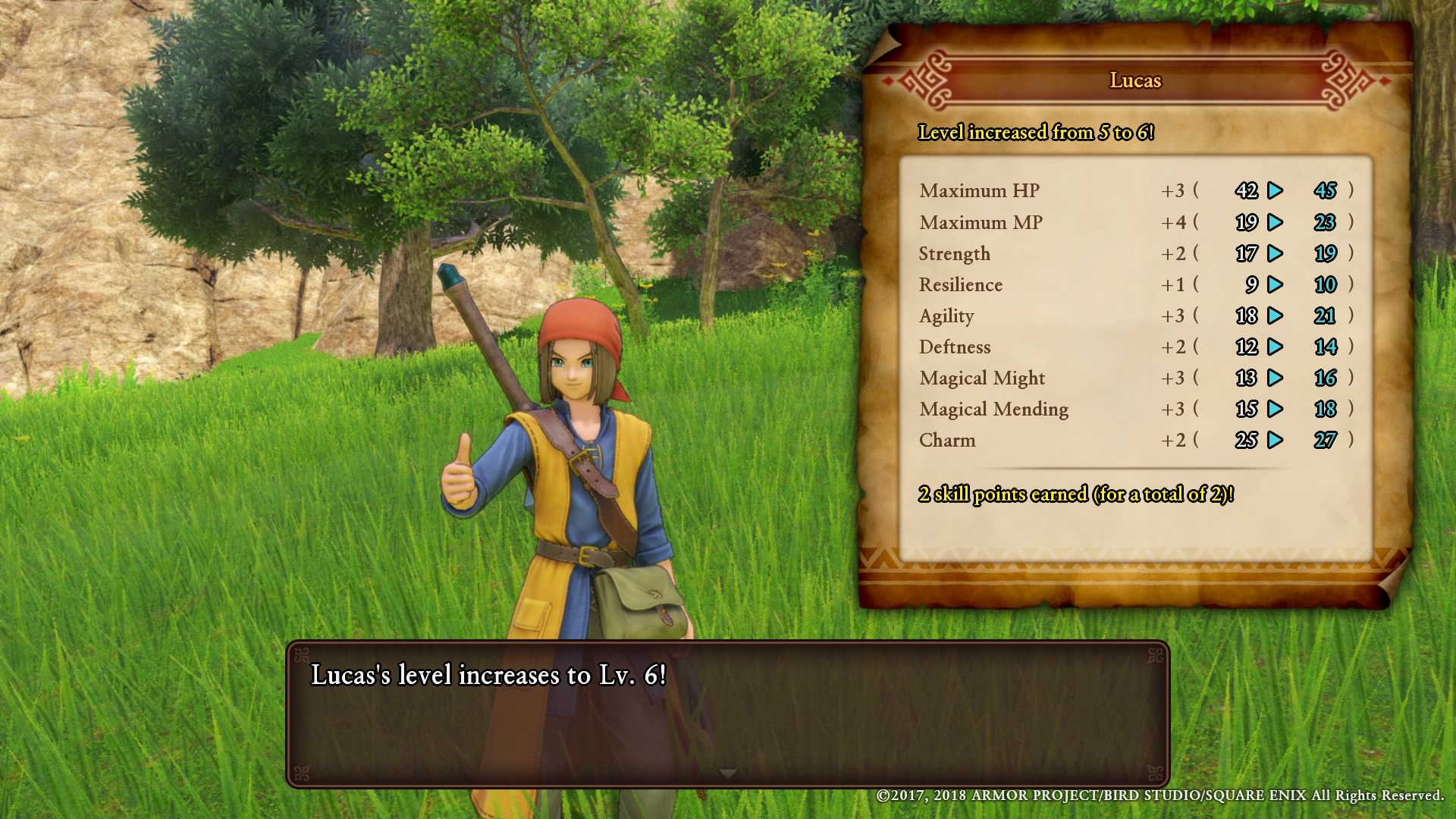
-
Dragon Quest XI Review #4
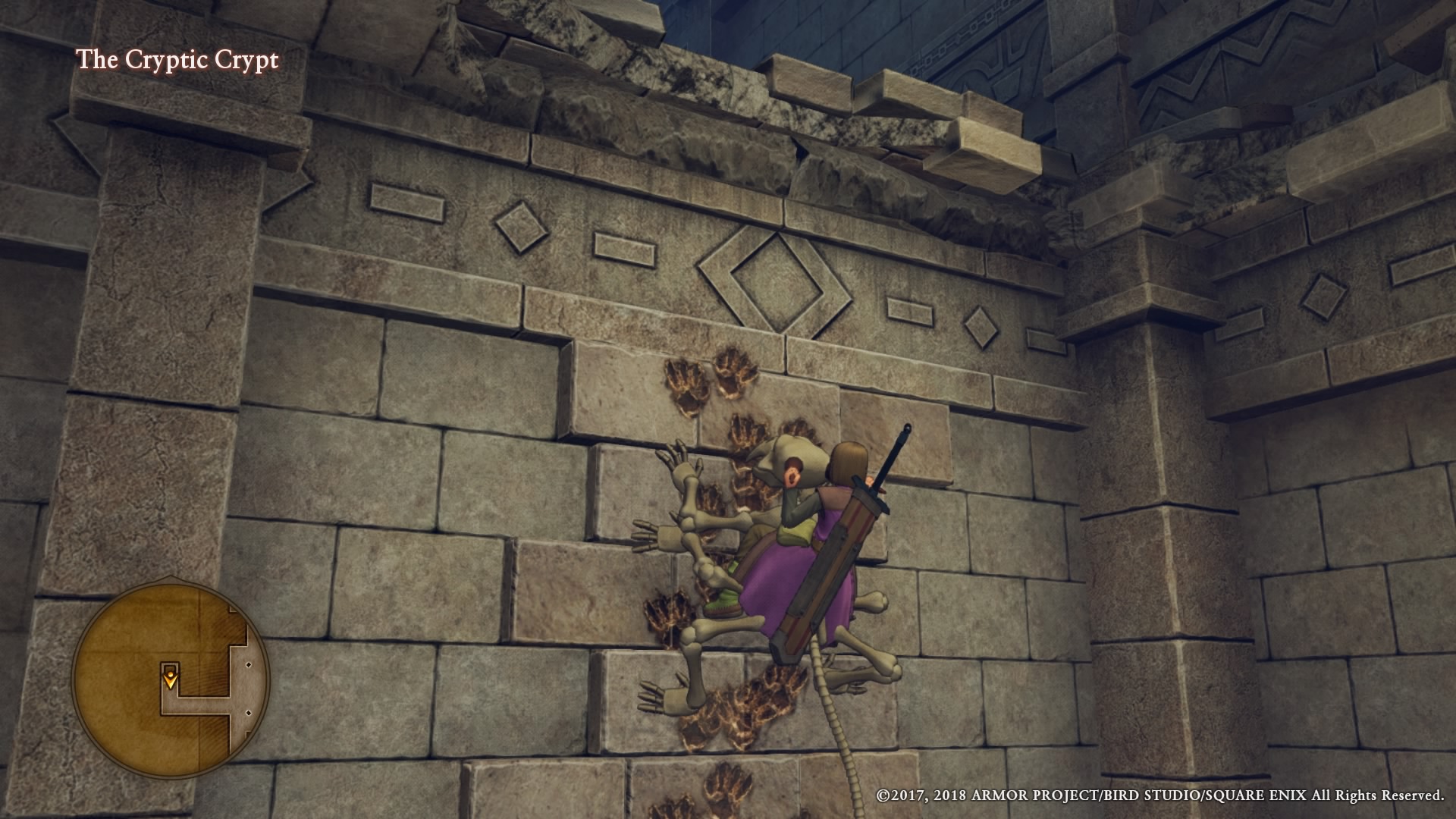
-
Dragon Quest XI Review #5
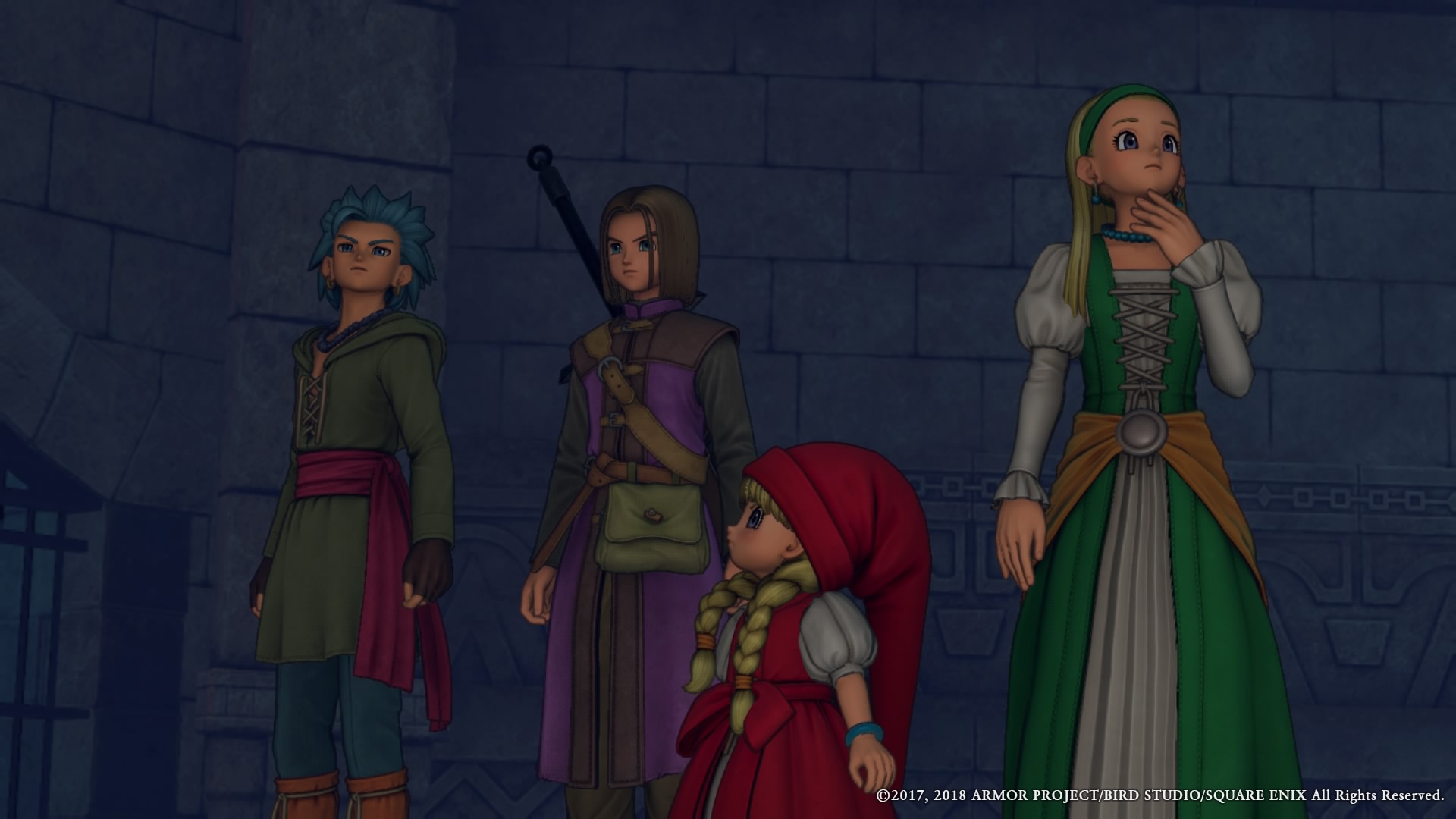
-
Dragon Quest XI Review #6
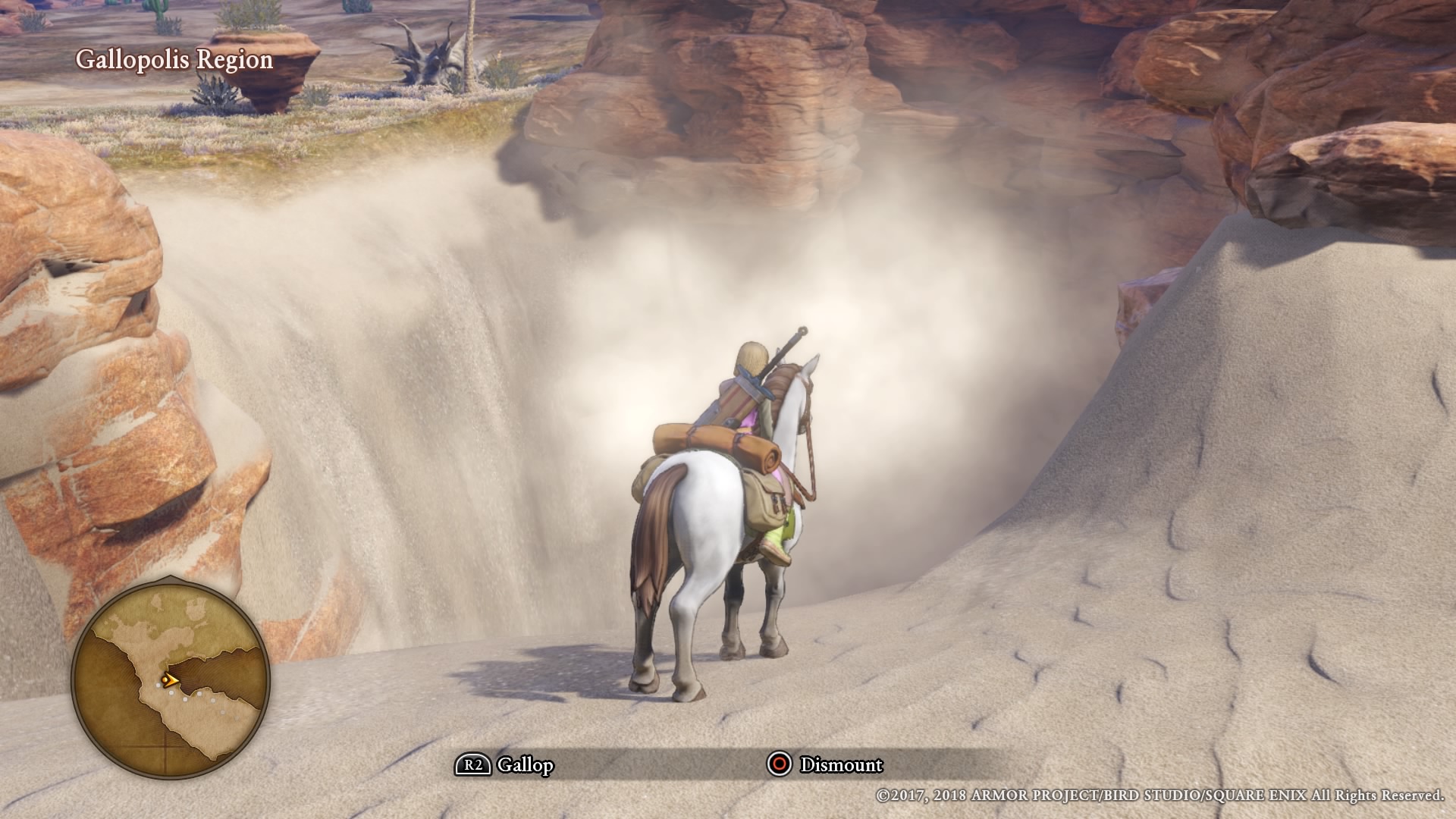
-
Dragon Quest XI Review #7
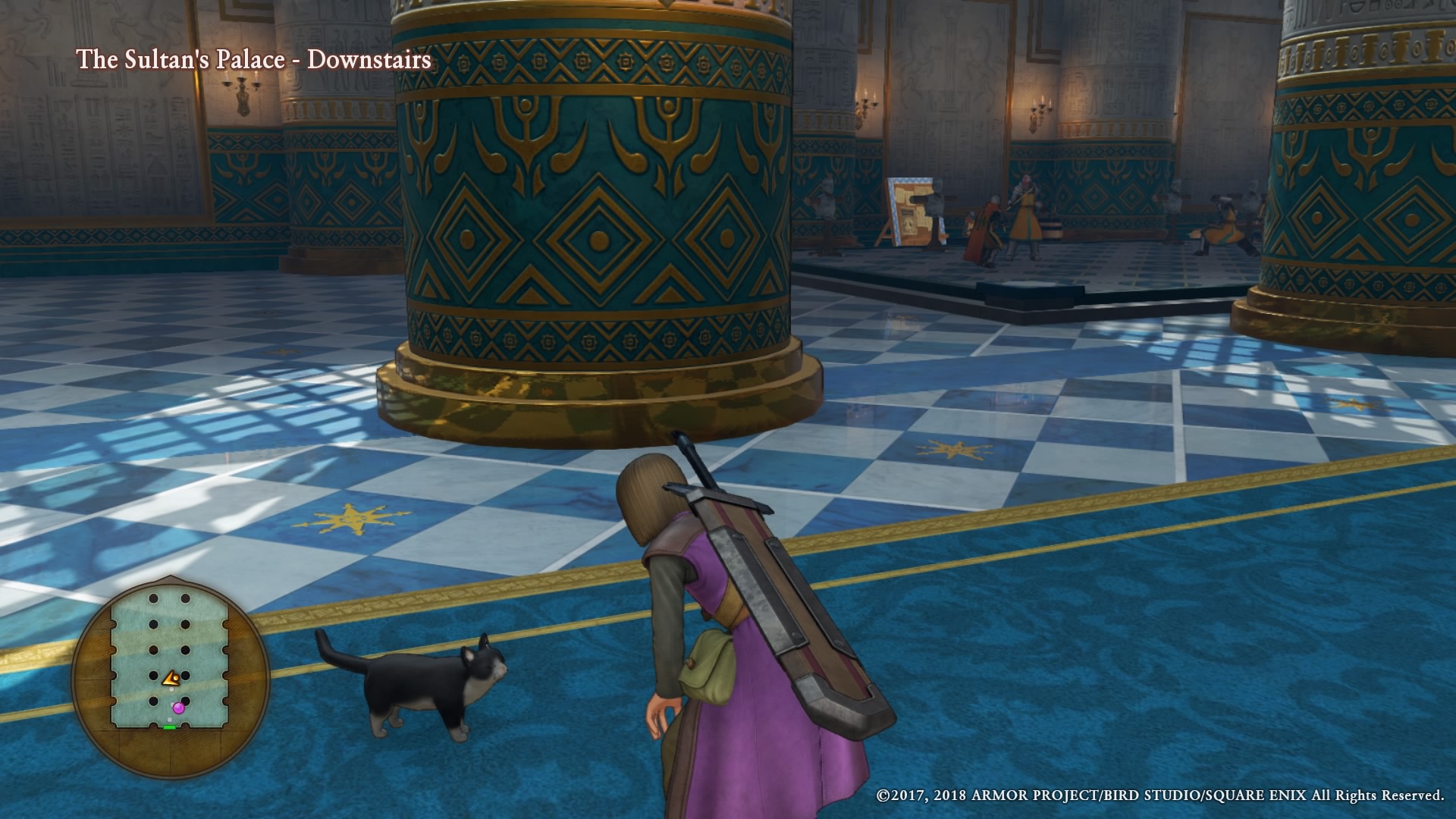
-
Dragon Quest XI Review #8
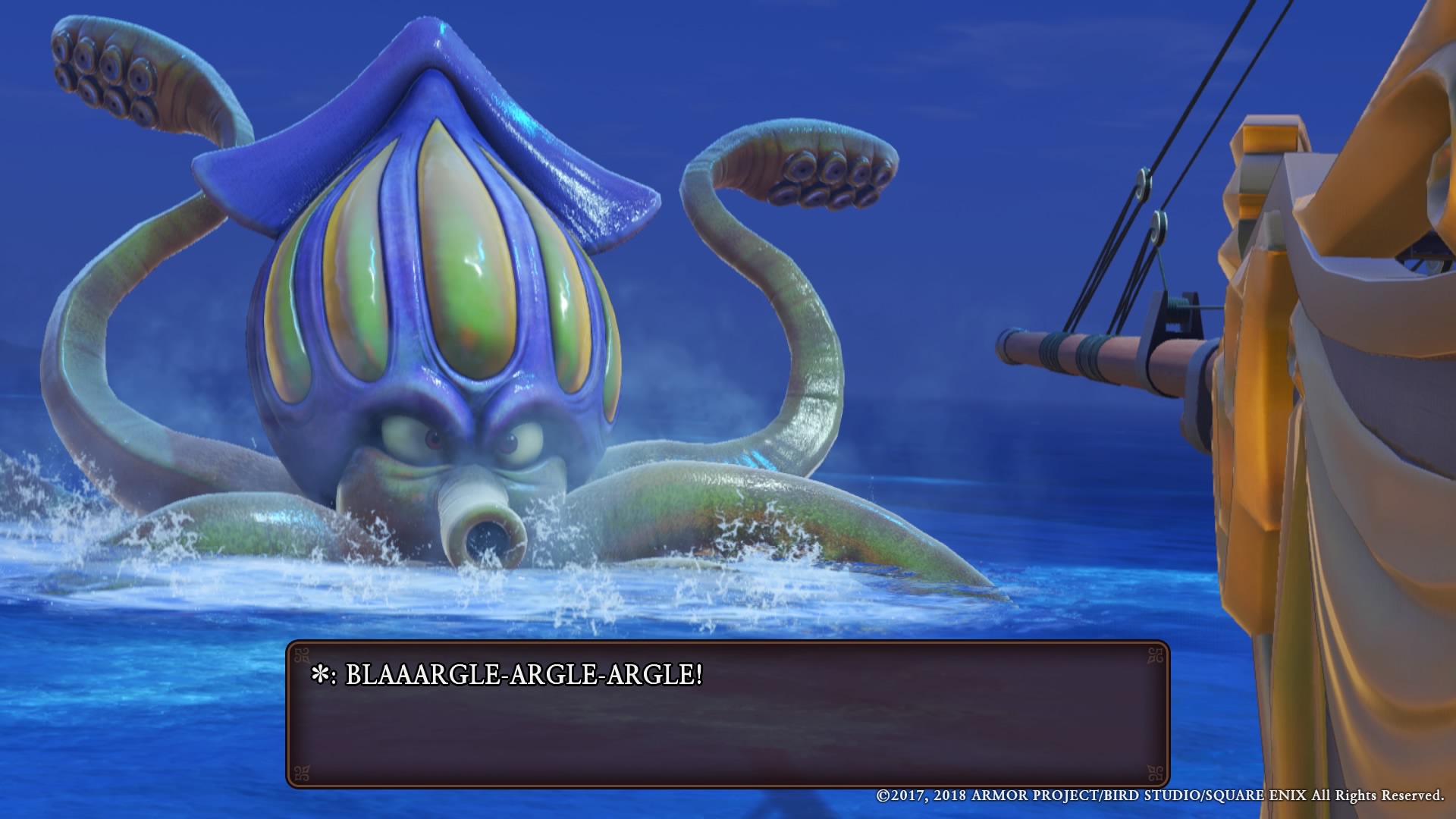
-
Dragon Quest XI Review #9
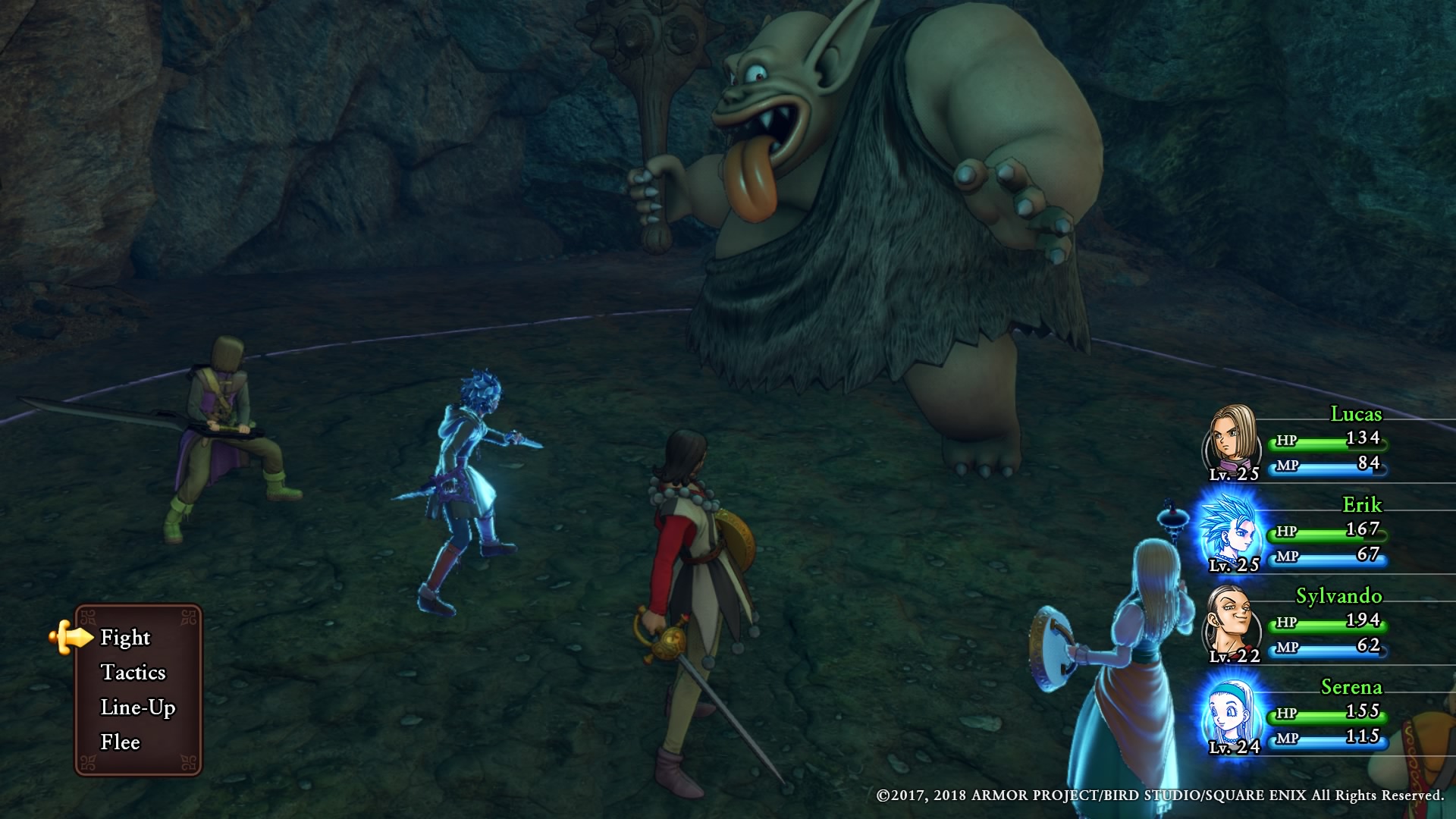
-
Dragon Quest XI Review #10
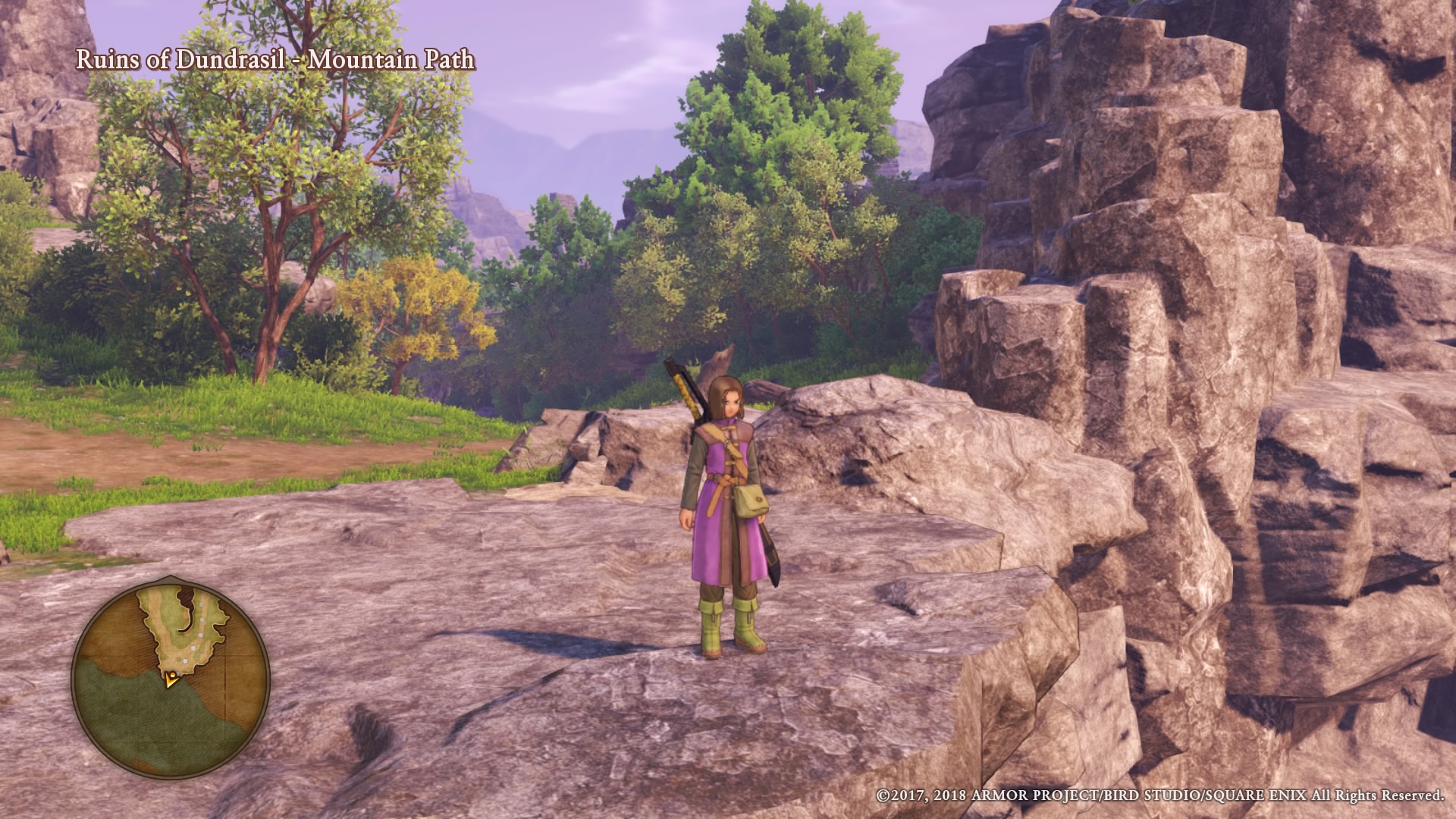
-
Dragon Quest XI Review #11
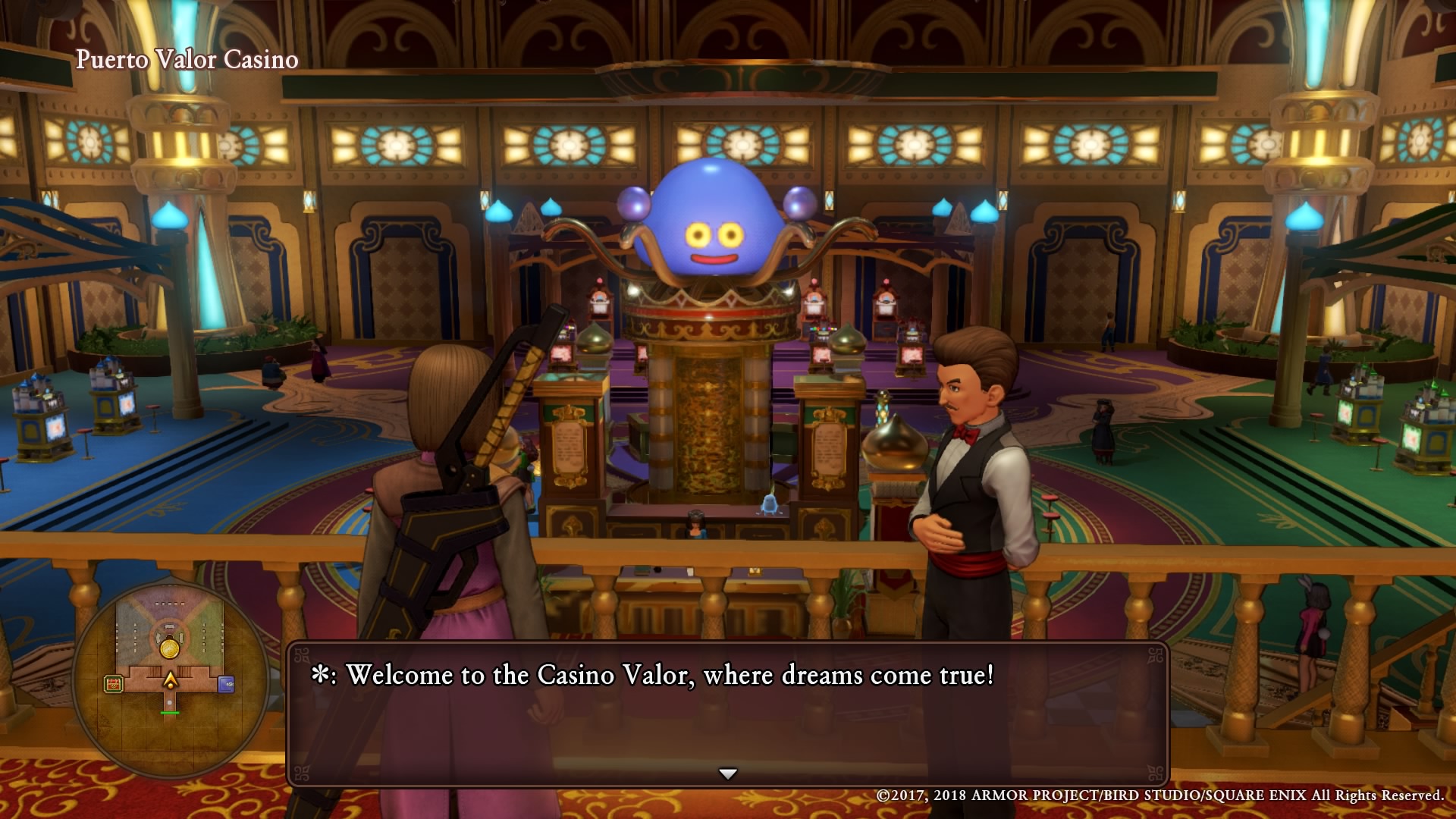
-
Dragon Quest XI Review #12
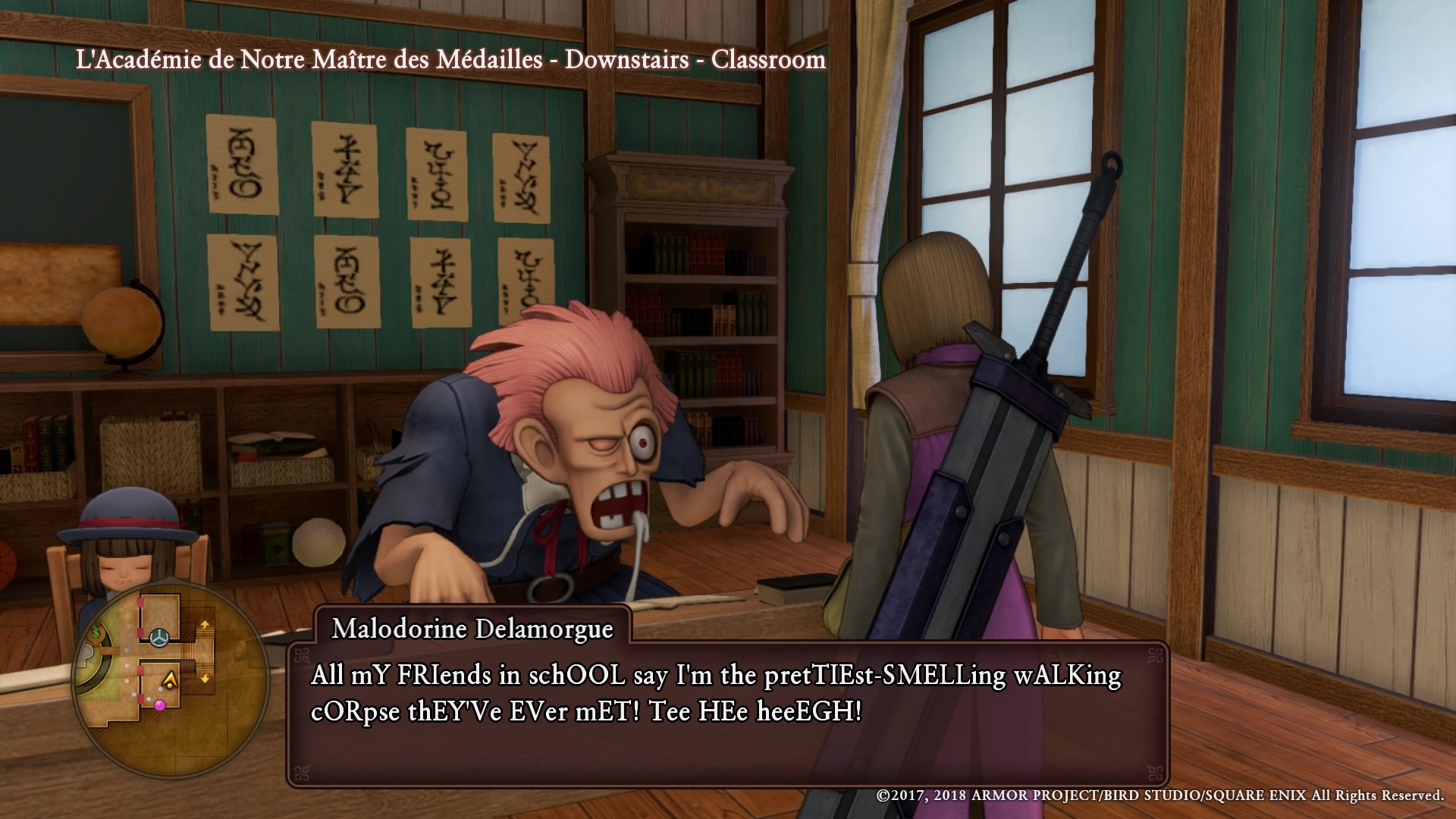
-
Dragon Quest XI Review #13
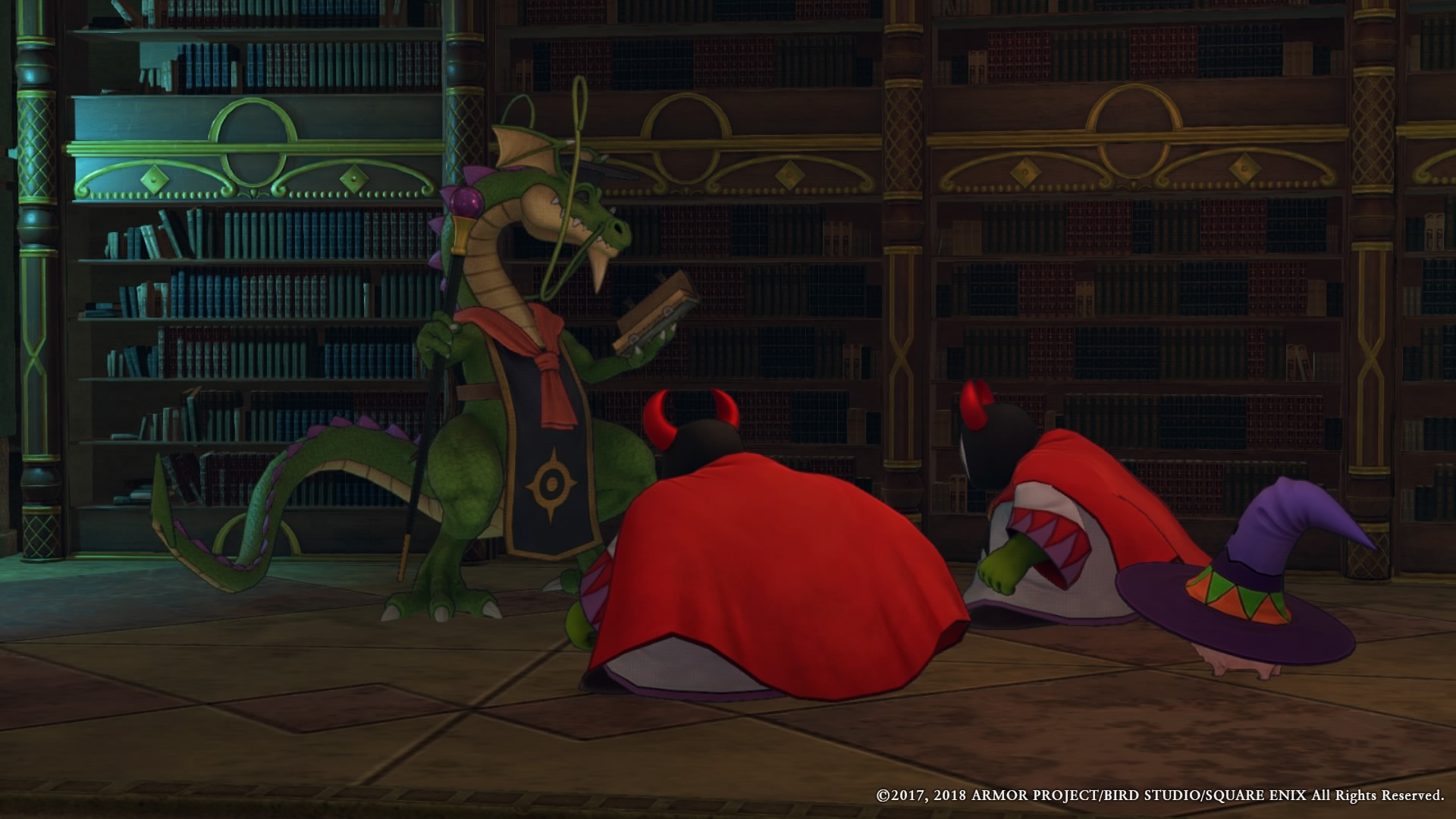
-
Dragon Quest XI Review #14
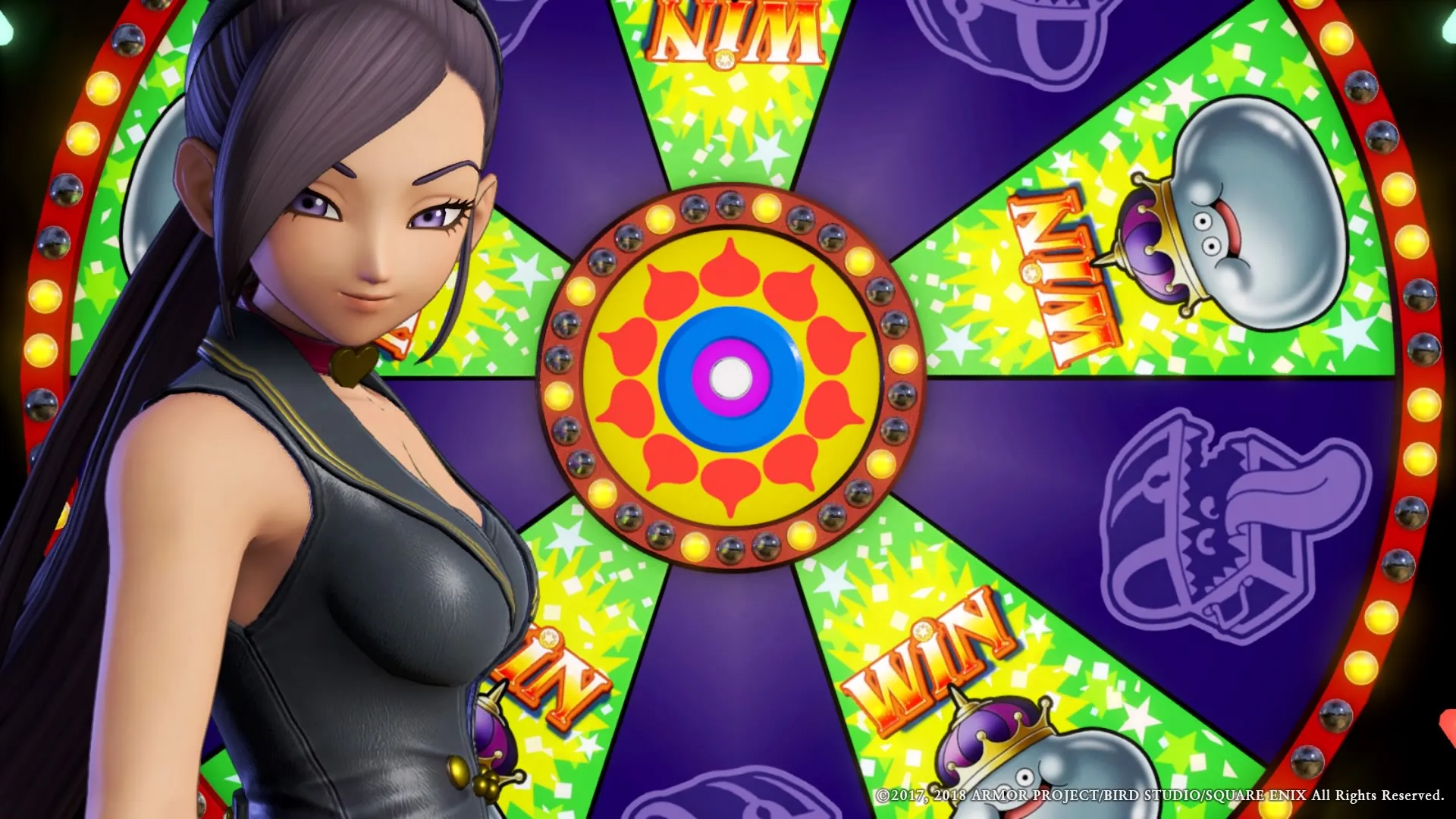
-
Dragon Quest XI Review #15
